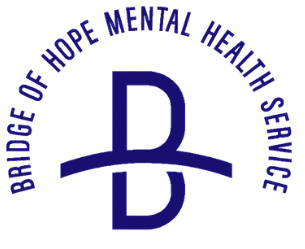Substance Use Disorder Treatment
Opioid Addiction

We Care
Opioid Use Disorder Treatment in Portland
What Is Opioid Use Disorder?
Opioid use disorder is a complex condition where individuals struggle to stop using opioids such as prescription painkillers, heroin, fentanyl, or kratom. These substances cause changes in the brain that lead to intense cravings and withdrawal symptoms, making quitting without help feel impossible. At Bridge of Hope, we provide outpatient opioid addiction treatment rooted in compassion, clinical best practices, and cultural inclusivity.
Treatment Services in Portland, Oregon
When Is Opioid Addiction Treatment Appropriate?
Opioid use disorder can develop quickly and affect every part of life. You may have started with a prescription and found yourself needing more, or turned to heroin or fentanyl seeking relief or escape. Our program is designed to help you find stability and rebuild your life with dignity
Examples of when treatment may be appropriate include:

Self-medicating
Using opioids to cope with stress, trauma, or mental health conditions.

Withdrawal
Experiencing withdrawal symptoms like restlessness, anxiety, or pain when you stop using.

Dependence
Feeling unable to stop despite harmful consequences.

Relapse
Experiencing a recent relapse or overdose scare.
what to expect at Bridge of Hope OTC
What to Expect from Our Outpatient Program in Portland, Oregon:
Bridge of Hope’s opioid treatment services feature a smaller client-to-staff ratio for individualized support. We provide medication-assisted treatment (MAT) using buprenorphine (Suboxone), methadone, or naltrexone, overseen by experienced psychiatric providers. Medications help reduce cravings and support brain healing, while therapy addresses emotional, psychological, and behavioral roots of addiction.
You’ll receive one-on-one counseling, group therapy, and support from peer mentors who have walked similar paths. Our wraparound services include case management, family engagement, and wellness planning. We coordinate with sober housing, including LGBTQ-friendly housing options, to create a stable environment where you can focus on recovery.
A safe, welcoming environment for LGBTQ+ Patients
Inclusive, Identity-Affirming Care
We believe everyone deserves a safe place to heal. LGBTQ+ patients can feel safe and affirmed through our sober housing options and inclusive care model, which ensures that all clients, regardless of background or identity, are met with respect and understanding. We accept commercial insurance and work with individuals to remove barriers to care.

FAQ
Frequently Asked Questions
What is the first step to starting opioid treatment at Bridge of Hope in Portland, Oregon?
How does Bridge of Hope support people transitioning from detox, residential treatment, or hospitalization?
What additional supports are available beyond medication and therapy?
How does Bridge of Hope decide which treatment approach is best for opioid use disorder?
Schedule a Consultation
Ready to Take the Next Step?
If you’re ready to take the next step in your recovery, Bridge of Hope is here to support you every step of the way. Contact us today to learn more about our treatment programs and start building a plan that fits your needs.
Call Today!
503-461-2054
